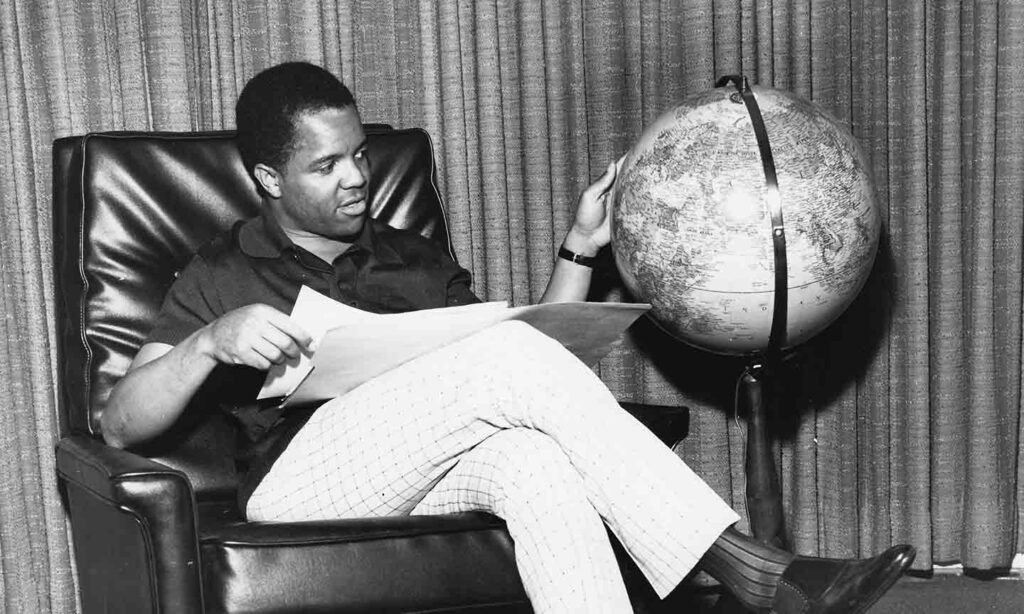
In 1959, Berry Gordy borrowed $800 to start a company that would go on to define a generation, shift global culture, and create one of the most successful Black-owned businesses in American history. He didn’t call it a movement. He called it Motown.
Gordy’s story is often told as a music-industry legend, but from a business leadership lens, it’s a masterclass in vision, scale, talent development, and legacy. I thought it would be powerful to revisit his story especially as we approach Juneteenth, a time to reflect not only on historical freedom, but on the systems and leaders who have helped advance equality in the decades since.
From Assembly Lines to Hit Records: Scaling Vision into Reality
“My philosophy is that the music business is 80 percent business and 20 percent music.” –Berry Gordy
Before Motown, Gordy worked on the Ford assembly line. He took the same discipline and scalability he saw in manufacturing and applied it to music. He created what was essentially a leadership system for creativity, a repeatable, scalable process that turned raw talent into global stars. Songwriters wrote. Producers arranged. Talent was groomed, mentored, and developed into brand-ready artists.
What some say looked like creative chaos from the outside was, in fact, a carefully designed infrastructure for producing scalable excellence. He built a culture where creativity thrived within structure and where innovation was not just encouraged, but operationalized. He engineered systems that produced positive results again and again which is a cornerstone of the great leaders of today.
People First Even Before the World Sees Their Potential
“Hard work beats talent when talent doesn’t work hard.” -Berry Gordy
Perhaps Gordy’s most profound strength was his eye for potential. Diana Ross, Smokey Robinson, Michael Jackson were not finished products. They were talented but not full realized and Gordy saw who they could become and worked with them until they believed it too.
He invested heavily in coaching, mentorship, and presentation. Artists learned how to hold a mic, navigate press interviews, and perform on the world’s biggest stages. He turned promise into stardom and the industry took notice. Gordy knew that developing people was a growth strategy and he put money behind the people he believed in and their growth.
Courage to Lead Through Culture
“Innovation is the key to staying relevant and ahead in any industry.” -Berry Gordy
When Marvin Gaye delivered What’s Going On, a bold, socially conscious record that tackled war, inequality, and police brutality, Gordy hesitated. The album was a significant departure from Motown’s formula of mass-appeal love songs. It challenged the brand. It took a stand.
But Gordy let it through. He knew leadership sometimes means trusting the message even when it disrupts the model.
His decision positioned Motown as not just a music label, but a cultural voice. Gordy understood that purpose and profitability can work together to fuel his organization. He was knows to share his belief that purpose-led decisions have the power to amplify brand when done for the right reasons at the right time.
Why This Matters Now
“The difference between is us is so much less than the sameness.” -Berry Gordy
Juneteenth is a milestone in a continuing journey. It marks the end of slavery, yes, but it also prompts deeper reflection on the systems, leaders, and institutions that shape access, opportunity, and progress today.
Berry Gordy didn’t wait for inclusion. He created it through the decisions he made every day.
He created an enterprise that empowered Black artists, executives, and entrepreneurs to own their work and shape their futures. In doing so, he challenged the norms of his industry and opened doors for future generations. His leadership was structurally transformative to the very fabric of our country.
Reflective Questions for Leaders
“Listen to the melody within.” -Berry Gordy
As you consider your own role and impact, especially in today’s dynamic and diverse business climate, take a moment to reflect:
- As a senior leader, am I building systems that elevate talent or simply sustaining those individuals that perform at a high level?
- Are my decisions aligned with long-term purpose or short-term demands?
- Am I investing in potential that is not yet fully realized, or only rewarding what is already polished and visible?
- Have I created an environment where creativity, identity, and excellence can thrive together because of diverse perspectives versus just coexisting?
- What impact will my leadership legacy have in 10, 20, or 30 years on the fabric of this organization and those that I lead?
Berry Gordy built more than a label. He built an engine of cultural impact that is still running today. His story is so much more than history and nostalgia because it is a leadership blueprint. At the core of his success was the idea that enduring leadership comes from investing in what the future needs, versus simply what the present rewards. It seems like a timely message for the organizations of today and the leaders that are called to shape the future. You know who you are…
Leave a Reply